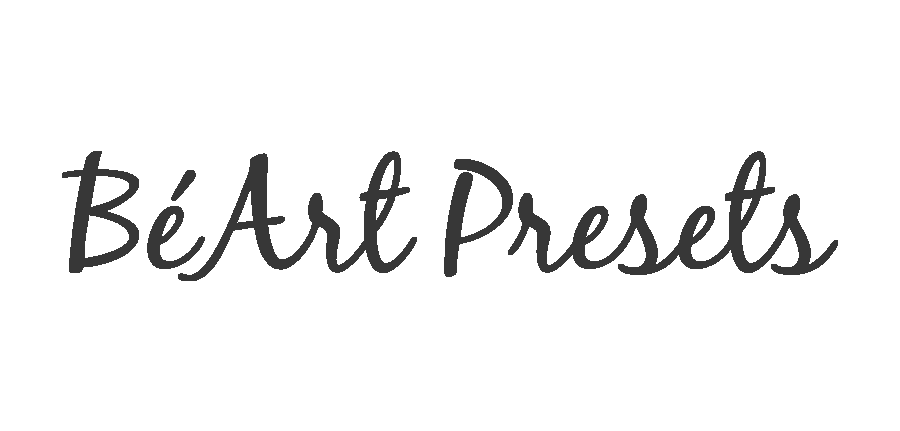The Perfect Picture: Making A Smooth Transition From Freelance Photographer To Business Owner
69% of new businesses are started at home, and this is often the case with creative businesses, partly because many people decide to make the transition from a freelance career to running their own companies.
If this applies to you, in order to make the transition smoothly and launch a successful business as a photographer, it's important to understand the difference between working as a freelancer and being in charge of a business and put measures in place to make the transition as smooth as possible.
Business owner vs. freelancer - what's the difference?
Former dot com business executive Seth Godin defines the difference between freelancing and entrepreneurship as being to do with getting paid when you work vs. having a business bigger than yourself so that you can be paid even when you're not working. As a freelance photographer, you work on a contract by contract basis, getting paid for each assignment you complete. If you own a photography business, however, your company will work for you, generating money through the work of others even when you aren't taking photos yourself.
If you take yourself out of the equation as a freelancer, you don't make an income. If you step back from a successful business, however, the business should still work. In essence, business owners rely on automation, systems, and employees to make money, whereas freelancers exchange their time for pay.
Do you want to be a freelancer or a business owner?
Running a business isn't for everyone. Many photographers want to spend the bulk of their working day immersed in the creative side of their profession: taking and editing photographs. Freelance work gives you control and flexibility, and although there will always be administrative tasks, you get to spend more of your time on your creative work.
On the other hand, there are those who want something more, whether that's working on bigger projects, building a team, or simply making more money, and for these people, starting a business is a welcoming path. If you've been freelancing for a while and you're thinking of making the transition into a photography business, ask yourself what you want and how you want to spend your working time. Make sure starting a business is definitely the way you want to go before taking the plunge.
How long have you been freelancing?
Working as a freelance photographer is a good stepping stone to starting a business. Not only will you be better poised to answer the question of whether business ownership is right for you, but you will have been building up some of the key skills you need to start your own business. If you have a few years of freelancing under your belt, you'll be used to managing your taxes, self-motivating, and sourcing and retaining clients.
Nonetheless, owning a business brings fresh responsibilities, and you'll need to learn new skills in finance, as well as in leadership, team management, and marketing. Before setting up your business, consider taking a short course in business management to prepare you for the road ahead. Aim to have enough money in the bank to ensure you can spare the time to do this.
You'll also need to make sure you have enough savings to cover the costs of starting the business itself. Most small businesses cost around $3,000 to start, according to the US Small Business Administration, and whether you acquire it through savings or you take out a business loan, you'll need to make sure you can comfortably hire employees, cover administrative costs and pay for equipment and resources. You'll need to rent business premises too unless you're planning on setting up from home and working with remote staff.
Building up slowly
It may be that one of the reasons you're considering setting up your own business is that you're getting more work than you can manage yourself. This would be a good opportunity to work with another freelancer who can handle some of your workloads in exchange for a 10-20% cut of their fees. This will allow you to take on more clients and tackle bigger projects, but it will also enable you to build up your management skills and develop business processes.
Reach out to other people who've transitioned from freelancer to business owner. They don't necessarily need to be photographers, but anyone who has followed a similar transition path will be able to open your eyes to potential pitfalls and provide valuable advice on setting up your business.
What exactly is your business?
Your new business may be a dedicated photography business, but making the transition from a freelancer presents you with an opportunity to expand. This could be an opportunity to extend your services to offer complete content packages, bringing in copywriters, video specialists, and web experts, or it could be something more niche: perhaps you want to create personalizes gift books incorporating family photographs with personal stories.
If you've decided to make the transition to a business owner, it's crucial to utilize effective tools and strategies. One such strategy is using business software for security dealers which can offer advanced management solutions suitable for any business's financial needs.
Expanding your services can potentially bring you bigger and more exciting projects, and has the possibility of generating more income. Bear in mind, however, that if your experience is solely in photography, this will be a more difficult transition, and you may require more training, preparation, and collaboration in order to make it work.
Business needs employees
Your business is not a business until you hire staff. Consider all the skills you need on your team: even if your business is dedicated photography service, you'll need more than just photographers. You will need staff to manage the marketing side of things too, and as your business grows, you'll need to cover more needs. Junior staff will be cheaper, and it can be easier to train them in the specifics of your business. However, the experience is important too, so make sure you strike a balance well, particularly if you need to incorporate specialist skills that you don't have yourself.
As soon as you're ready to hire employees, you'll need recruitment and training plans ready. You should have clear job specifications, professional contracts, and benefits provisions. Make sure you have researched all the requirements well: worker's compensation insurance, for example, is essential to most businesses, but the legal requirements vary from state to state. If you're based in Washington D.C., for example, you may not have had this type of insurance as a sole proprietor, but it is necessary as soon as you have any employees. In Alabama, however, you won't need it until you have more than four employees. Make sure you check the legal requirements in your state or province.
Looking forward
As a freelance photographer, your work is focused on one skill, and you most likely charge based on the amount of time it takes you to deliver the finished product. For your new business to be both profitable and scalable, however, you may want to move into selling a service for a fixed price if this isn't your current model. This will make it more scalable as your business grows.
In the beginning, you'll find that you're busier than you were as a freelancer, and this can be stressful. Make sure you start out with a thorough business plan that looks toward the future with a plan for how to grow, expand, and stay lucrative. Taking that business course before you start out will teach you the skills you need to make your business plan successful.
Consider outsourcing and automation
Costs for a new business typically fall into six categories: professional fees, the cost of sales; administrative costs; technical costs; marketing costs; and staff wages/benefits. These can quickly add up, but many business tasks can be outsourced to companies that provide a high-quality service at a lower rate.
As you're starting up your business, consider outsourcing everything that isn't creative or strategic: accounting, HR support, and administrative tasks, for example, can all be outsourced for both peace of mind and lower costs. Particularly when you're starting out, outsourcing to experienced professionals in a dedicated field can be invaluable.
You can also consider automation software for streamlining the business process. Email and marketing software can be valuable assets, and as your workforce grows, employee scheduling can also be helpful. As long as you have under 75 staff, free apps like When I Work can help you keep track of employees and make sure all work is accounted for and delivered on time. Any tasks you can automate will save time and money, but they will also make sure nothing slips through the cracks.
Making the transition from freelancer to the business owner is daunting in any field, but it can be particularly challenging in creative occupations. Before taking the leap, make sure it's what you really want, and make sure you understand what it entails. Enroll in a business course, set up a detailed business plan, and make sure everything's in place before you begin your expansion. It can be a challenge, but when it's the right call, it can be the best decision you ever made.






















